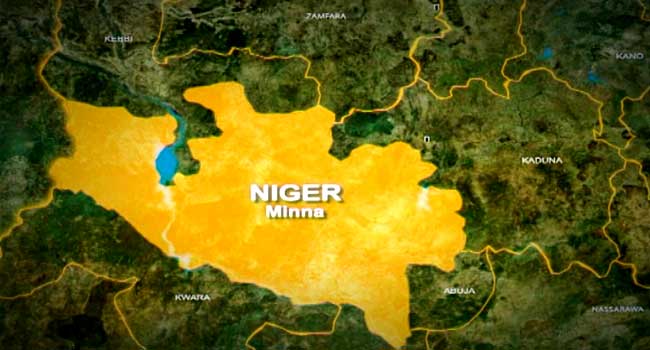It’s a pity that the #BringBackOurBoys has suddenly died down. It’s a pity that yet another group of schoolboys has been abducted. And it’s a pity that we don’t actually know what will happen next.
By Wednesday, February 17, the abduction of 42 people, including 27 students and 3 teachers, in Government Science College, Kagara, Niger State, is unequivocally reasonable to submit that the Nigerian government is still grappling with the sphinx of insecurity, increasingly of students, incessantly in the North.
From North-East Borno to North-West Katsina, the insurgents have tactically and strategically migrated to North-Central Niger. And they’ve tentatively monopolised Northern spheres of the country, born out of the civil disobedience and negligence group of demagogues, who’re impervious to corrections and immune to warnings. To a visionary leadership, this should have been a foreseeable future, yielding a firm persuasion of cementing the cracks in the entire Northern walls of the country, where these ungentlemanly guys have expediently held hostage for their siege and seizure.
On December 11 2020, when the schoolboys were abducted, social activists and advocates were technically leaning towards some #BringBackOurBoys campaign, especially because of the April 14 2014 experience, when over 270 Chibok girls were kidnapped by the adversaries. But then, the #BringBackOurGirls crusaders, in particular, Oby Ezekwesili, were too quickly deemed to be witch-hunted as the over 300 boys were repatriated.
I side with Ezekwesili who, observing how inchoate and otiose the efforts of the Nigerian security agencies have been, and particularly angst by the Federal Government’s apparent deficiencies and delinquencies in rescuing the Chibok girls, did suspect some corridors-of-power rabble-rousers riding roller-coasters with public intelligence of the December 11 event by playing political gimmick and flimflam. The claims of trying to gain credibility, security-wise, by perhaps planning and plotting a “putsch,” and a week later percolating them through from far-away lands, expelling schoolboys who’d been intellectually trading competitively perfectly on learning grounds, could have, in fact, been the worst threat of human rights for human wants.
Having a lot of explainers and not having a set of visionaries is not really the hallmark of values-based leadership. Typically, an envisioned leader would a posteriori examine what has happened, what is happening, in order to predict and prepare for what will happen. Such experiential deduction and conclusion would help him guard against any eventuality. Being envisioned is to know where and how one is and where and how one is going to get to the preferred destiny. This is what the security system lacks, even with the exhaustion the Kankara abduction made in terms of how exophoric our law enforcement agencies are.
Ending SARS or SWAT is not really a problem. Occupying Lekki Tollgate is not necessarily the solution to how fundamentally depowered our security forces are. The point is the so-called “forces beyond our control,” who have been institutionally ingrained in the social fabrics of the polity, are unilaterally masking up the malfeasance and misdemeanor and masochism wrought by the security personnel. More teeth-gnashing problems persist in the North, by the way, demanding urgent and immediate attention and intervention. And the North geographically covers 2/3 of the Nigerian territories and borders. (The devastating Fulani-herdsmen crisis is as yet a firestorm in the firmament fervently fomented by some group of warmongers.) Time and again, parents and guardians are pathetically distressed and perennially disturbed by the looping and looming of these terrorists threatening the lives of their wards every now and then. It’s a simultaneous shame that while the pandemic would not let the students learn, the bandits themselves are harum-scarum proving to be more vindictively unvaccinated. As we are on the threshold of shipping in COVID-19 vaccines, we should be inspired by the Kagara abduction, this time invoking death, in providing lasting jabs, since, jointly, both of them are existential threats to human existence and coexistence.
We should begin to be concerned about the power of inclusive politics hinged on uniting the federal entities of the country. All ideological and cultural biases should be burnt out in the social exercise of seeing and treating each other the same way. Inclusive politics is also a necessary narrow-for-a-broad-purpose tool that can and should resuscitate our ties with other nations, especially economically, where we have been uncontrollably, and inevitably, operating on budget deficit exacerbating our gross domestic product.
Security of schoolboys and girls should be of tremendous duty to be embraced in season and out of season. It’s a collective responsibility of ensuring the outrage in the North is denoisified. And I also think that all modes of learning, for now, should be virtual as the government sees to the matter. It’s not impossible, in the long run, to build impenetrable walls of Jericho around the cities and towns of Northern states. Experience is a good teacher, but it can only be better if we learn from its pleasant and unpleasant teachings by doing the right things at the right times, and it could only be best if we conscientiously and consciously abide therein by carrying out the lessons therefrom.
Ige is a freelance journalist in Lagos.

Call:
Sandra - 07069148333
Pauline - 08174374150
Scholastica - 09060678434













